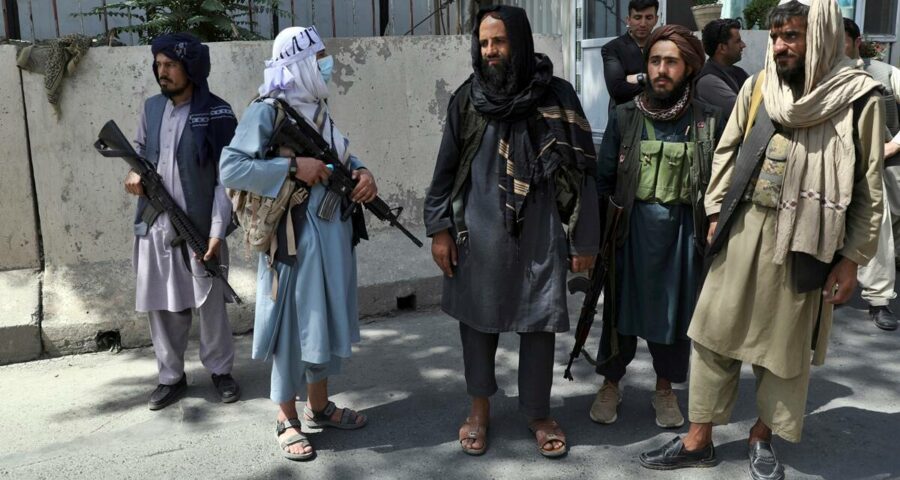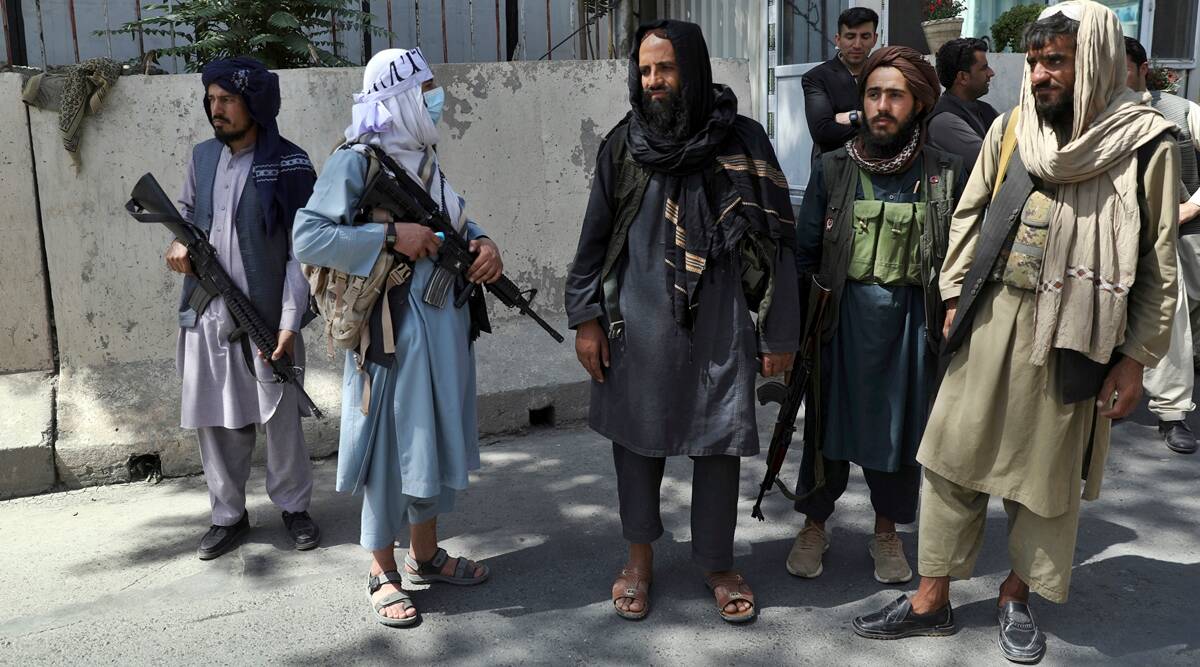Accusing the neighbouring Pakistan for providing all support to the Taliban, the man said dictatorship would not last for long.
It was only a few years ago that Hakeem Jan Muffaker had a fortunate escape from the gunpoint of the Taliban when he travelled from Kabul to his sleepy home village in Paktia province in Afghanistan.
Even days after he managed to flee the mountainous province giving the militants a slip, the frightening memories of the turban-clad insurgents wielding guns continued to haunt him.
Before and after the shocking incident, Muffaker, a research scholar at the Kerala University in Thiruvananthapuram since 2019, has several horrendous tales of Taliban’s cruelty to share.
When the news of the Taliban sweeping into the Afghan capital trickled in, Muffaker was thousands of miles away from his native place, in Kerala.
But, the 38-year-old man is all anxious about the safety of his parents and siblings living in Kabul, especially his brother, a serving officer in the Afghan national army.
“As soon as the news broke, I called my family members. They are all scared of the brutal Taliban. As my brother is a national army officer, his life is at risk,” Muffaker told PTI.
As the Afghan government collapsed and the reign of the country landed in the hands of the fundamentals, his brother returned home the other day.
Accusing the neighbouring Pakistan for providing all support to the Taliban, the man said dictatorship would not last for long.
“The Afghan people will stand firmly against them if they (Taliban) are trying to implement Pakistan’s dirty policies there, violating the rule of law, human freedom and rights,” he said.
Detailing the cruelties of the insurgents, the Afghan national alleged that Taliban has 25 years of experience in killing the innocent and destroying infrastructure worth billions.
Muffaker recounted his own personal experience of having a miraculous escape from the clutches of the insurgents nine years ago.
It happened when he had gone to his native village in Paktia province, which was under the control of Taliban, to attend a family function.
“A day before my return to Kabul, the local Taliban had planned to kill or kidnap me. Fortunately one of my relatives got a whiff of their plan and shared it with us,” he said.
“I was scared to the bones and could not sleep for the next two days.. I stayed in the village, I had to delay my trip out of fear and lied to the villagers that myself and other guests already left the place. We secretly traveled to Kabul later,” the man said adding that he could narrate several stories of gun fire and suicide attacks masterminded by the Taliban.
Noting that women would have only limited role, freedom and rights under the Taliban rule as compared to the previous government, he said most of the key government military and civil officials already left the country out of fear for life.
The only positive aspect about the present developments was that the decades-long internal violence had ended as the elected government collapsed and the insurgents gained control over the country, he said.
Observing that it was difficult to predict the future of internal conflicts now, he said it is just the beginning and one has to wait and watch what will happen in the coming days under the Taliban rule.
Muffaker, who is pursuing PhD in political science with scholarship, sees only a bleak future for him under the Taliban regime if he goes back to his home country.
“I had clarity with regard to my future under President Ghani’s dispensation. Now, I don’t believe the Taliban will respect my voice of freedom, professionalism and experience,” he rued.
Working with the Ministry of Urban Development and Land in the Afghanistan government, Muffaker took a sabbatical from his job to pursue his academic dreams.
Luckily, he brought his wife and children along with him to Kerala when he came to Thiruvananthapuram to join the university.
Asked whether he would like to go back to his home country soon in view of the present developments, the man said he would prefer to stay in India or migrate to any other western country if there is no respect for democracy and human rights in Taliban-ruled Afghanistan.
“I am committed to my country if there is respect for democracy and human rights. If not possible then I will prefer to stay in India or any other western country,” he added.
Muffaker is one of several Afghan nationals studying in various universities of Kerala under the union government’s Indian Council for Cultural Relationship (ICCR) scholarship programme.
When contacted, Mustafa Salimi, another student from Afghanistan in the Kerala University, was reluctant to talk, saying he was anxious about the present developments in the home country and so it was difficult for him to answer queries regarding it.
Professor Sabu Joseph, Director of the Centre for Global Academics at the Kerala University, said there were some students who went back to Afghanistan recently to renew their visa and were trapped there due to the ongoing issues.
“An Afghan student, who completed his PhD and about to join as a post doctoral fellow in sociology, recently went to Kabul to change his visa. He is now trapped there and it is not clear now whether he can return to India and continues his studies,” he told PTI.
As many as 11 students have enrolled in the new batch, to begin next month, in the Kerala University in various streams after winning the ICCR scholarship.
Joseph said they are concerned about the academic future of those students also.
Due to the COVID-19 situation, the classes would be on the offline mode in the initial two-three months and as per the new directive, foreign students can attend the class staying in their homeland during the period.
Of the total 3,500 ICCR scholarships, provided by the Government of India every year, 1000 are reserved for Afghan students alone, university sources added.
Source: Read Full Article


